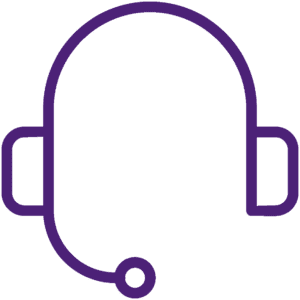Even though nursing might be a well-known and age-old profession, many myths remain regarding this growing and vital field.
There are probably some things about nursing that you have heard that make you think twice about joining the industry. Just know there are a lot of myths about this profession. Don’t let them hold you back.
Let’s end these myths once and for all.
Here we dispel a few of the myths we hear most often.
18 COMMON NURSING MYTHS
- Only women choose nursing
“If any man is deterred from pursuing a career as a nurse, then we have failed as a community.” – Luke Yokota, MACN.
Most of Australia’s health workforce is female.
But while the nursing profession has been traditionally a female-dominated one, the notion it is a “women only” career is waning.
In spite of the small proportion of men in nursing (just around 11%) in Australia, the tremendous opportunities in this rewarding field are attracting more men.
The ACN Men in Nursing Working Group has considered these issues and is working on strategies to change the perception of nursing in Australia to be more inclusive of men.
- Nurses can only do nursing jobs forever
Nurses are not only found in hospitals.
Here are a variety of healthcare centres, areas and positions that need nurses:
| Health Programs Nurse | Paramedic Nurse | Health Visitor Nurse | Informatics Nurse | Telemedicine Nurse | Home Health Nurse | Nurse Life-Care Planner | Nurse Educator | School Nurse | Public Health Nurse |
| NGO Nurse | Hazardous Waste Nurse | Federal Health Care Nurse | Toxicology Nurse | Bioterrorism Research Nurse | Nurse Lobbyist | Environmental Health Nurse | Vaccine Research Nurse | Forensic Nurse | Procurement Nurse |
As nurses gain experience over the years, they can also move up the ladder to supervisory positions. Eventually, you will be responsible for guiding other nurses.
Plus, you can use your nursing skills in other roles too, so stop believing all those myths!
For instance, here are a range of professions where a nursing degree is useful: Medical Biller, Health Writer, Nutritionist, Health Service Administrator, Health Researcher, Medical Sales Executive, Nurse Consultant, Clinical Nurse Educator. So, there are many options to consider once you become a nurse.
- Nurses must go back to school fulltime to advance
A profession as varied as nursing offers many opportunities to take care of patients in different ways.
You can be happy as a nurse without attending graduate school.
Frontline nursing is, and always will be, a vital and emotionally rewarding job.
Seasoned nurses have often been in their existing roles for decades and rarely think about leaving.
One of the main benefits of being a nurse – particularly through Nurses Now – is scheduling flexibility, opportunities for overtime, and the ability to participate in committees and councils at work.
Nurses are subjected to too much pressure to advance as quickly as possible after receiving some experience.
Get to know the role of a nurse first, and appreciate how much you can accomplish.
After that, you can decide if graduate school is a good option for you.
- Nursing studies is all theory
The bulk of nursing school is spent in a classroom, attending lectures, reading, studying and taking tests.
However, there will be lots of practical classes for you to attend.
On top of that, you will be placed at various hospitals for clinical rotation throughout the duration of your studies. So be involved and engage in active learning when on assignment.
If you’re interested in further developing your healthcare career, Nurses Now is here for you.
- Nurses work crazy hours
Many hospitals require 12-hour shifts due to the nature of the work, but many areas of nursing have regular 9-5 type jobs.
If you work in a clinic, business, or school, you’ll work a more traditional work week.
And, if you are with Nurses Now, you can choose when and where to work.
Nurses Now gives you the flexibility to organise your own schedule to suit your lifestyle.
- Nurses need caffeine to work
Not the worst of all the myths, but even so. Most health professionals nowadays know the benefits of staying healthy and keeping hydrated.
Many nurses drink plenty of water and healthy drinks, and don’t need caffeine to kick-start their shifts or keep them engaged during a busy rotation.
- Nurse life is just like what you see on TV
Nursing is neither sexy nor glamorous, and the sooner myths like these are busted the better.
And no, most nurses do not marry doctors. TV medical dramas have a lot to answer for when it comes to ridiculous nursing stereotypes.
The truth is, nurses are beautiful people inside and out because their job is to care for others and they look great in scrubs because they feel so comfy!
- It doesn’t matter where you go for your education
Well, it does, a bit.
Australia’s nursing program is popular and recognised around the world. University programs in nursing range from diplomas to bachelor degrees to master degrees. Students are taught to a global standard to ensure they gain useful skills.
Australia is home to some of the world’s most revered nursing programs. According to the QS World University Rankings by Subject 2020, an impressive 10 Australian universities ranked in the top 50 nursing schools in the world. The universities that placed were:
- University of Technology Sydney – 7th place
- The University of Sydney – 13th place
- Monash University – 14th place
- The University of Melbourne – 26th place
- Deakin University – 29th place
- Griffith University – 33rd place
- Queensland University of Technology – 36th place
- The University of Queensland – 36th place
- The University of Newcastle – 38th place
- The University of Adelaide – 39th place
And Nurses Now offers industry-recognised training and education to all of our staff through the KINEO platform.
This system not only meets the CPD requirements outlined by the Nursing and Midwifery Board of Australia (NMBA), but further ensures that our staff maintain up to date knowledge and skills aligned with industry best practice.
Contact Nurses Now if you’re interested in further developing your healthcare career.
- You can’t be a nurse if you’re shy or afraid of blood
It’s OK to be a nurse AND be afraid of blood. Both myths. Sometimes you may not even have to deal with blood at all. There are many roles in nursing where you may go on to teach after you pass your exams.
And never consider being shy as a disadvantage. There are many positives to being introverted as a nurse. Among them are:
- Being a good listener, so you learn faster and retain more information
- Being observant, so you can spot mistakes and notice changes faster
- Being intuitive and having the ability to read people
- Being more soft spoken than others means you can help put patients at ease
It’s important to keep working on being more assertive and speaking up in critical situations.
- Nurses want to be doctors
Nope, myth. Nurses for the most part want to be nurses. Even at the undergraduate level, the training is different, so many people who do not get into medical school do not become nurses since they do not major in nursing.
Only a few nurses choose to become doctors. Nursing graduate degrees are often pursued instead by nurses who do wish to rise in the ranks of the healthcare profession.
If a nurse decides to become a doctor, they are often better at communicating with their nurses since they were nurses at one time.
Even so, transitioning from nursing to medicine can be challenging. Nurses, however, are generally happy being nurses. Just as doctors are not “maxi-nurses”, neither are nurses “mini-doctors”.
- Nurses are doctors’ personal assistants
The nurses at a hospital are the main support system for patients and provide the link between doctors and patients. It is not a fallback career.
While nurses do some work that helps doctors, nursing work is largely independent and just as necessary.
Nurses administer tests and give lifesaving care to patients every day. Generally, nurses are also responsible for advocating and educating patients, so a nurse, not a doctor, is usually the one who makes sure that you know how to care for yourself after you leave the hospital.
Nurses are, in fact, at risk of getting in trouble if they follow doctors’ orders blindly. Nurses have an ethical responsibility to make the best decision for their patients, and that decision is ultimately theirs to make. Nursing saves lives too, so they will forever be more than “doctors’ helpers”.
- A Nurse, is a nurse, is a nurse
In Australia, there are six different kinds of nurses – each with their own speciality and qualifications. These are: Registered Nurses, Enrolled Nurses, Assistant In Nursing, Clinical Nurse, Midwife, Nurse Practitioners. So, ignore the myths.
Every area of nursing practice is a specialty.
For example, the difference between a Registered Nurse and a Nurse Practitioner is that NPs are capable of working autonomously, without direct supervision.
In terms of clinical practice, the difference between RN and NP is that Nurse Practitioners can order investigations as part of care planning and initiate or cease medications.
If you or someone you know is looking for their next career opportunity, feel free to browse our selection of nursing jobs in Australia.
- Nursing is a dirty job
While it’s true the basics of patient care often mean cleaning up after people and dealing with bodily fluids, it constitutes only a portion of what being a nurse is all about.
Looking after patients gives nurses a sense of accomplishment – that’s why being a nurse is regarded as a calling and not just a career. And there are so many positives: seeing new babies born, or being there for when a cancer patient goes into remission.
- Nursing is a safe job
As myths go, this is a big one. Nursing is a uniquely hazardous occupation. Nurses face many hazards on-the-job, and are around illnesses and injury as part of their working conditions.
It’s physically demanding, and the risk of infections is present not only in hospitals but in other settings where nurses are employed such as nursing homes, prisons, and outpatient facilities.
But nurses are trained well and fully prepared for all the hazards they face in their employment.
- Nurses are too busy to get to know their patients
Today’s nurses are busier than ever. It can be difficult to spend quality time with patients when there is so much to do, especially with low staffing levels in some facilities.
But this doesn’t mean patients are treated in a less caring and empathetic manner. The COVID-19 restrictions have made us all a little more impersonal, but nurses continue to provide quality care.
Nurses always balance patient satisfaction with patient care. They’re not so task-focused that they neglect being approachable and building trust.
Clear communication and excellent care are always the best ways to bring patient satisfaction to the bedside.
- Nurses have to do whatever their patients ask
It is the role of nurses to recognise symptoms of patients and to take actions within their scope of practice to administer medications, provide other measures for symptom alleviation, and collaborate with other professionals to help patients and families cope.
But if a patient’s demands are not in their – or the nurse’s – best medical interests or are unsafe, nurses have a right and a duty to deny and/or report these requests.
Patients place an extraordinary amount of trust in nurses, and communication is critical to developing this trust. In order to be a good nurse, you must also be a good listener.
Most people look to nurses as authoritative figures who are their primary sources of information. Nurses’ answers to patient questions help patients understand what is happening as well as learn more about who is caring for them.
As a nurse, you may find yourself having to address difficult questions. It’s important for nurses to be diplomatic and follow their facility’s policies. Answers often require tact, accuracy, compassion, empathy and appropriateness.
- Due to a nursing shortage, it’s easy to get a job
It is one of those myths that nursing graduates are certain to get jobs after graduating. In fact, this may be the case for nurses with at least 1-2 years’ experience, but there is a shortage of graduate nurse positions.
Nurses Now helps you short-circuit this trend and hook you right into where the jobs are in your industry. Have a look at the latest jobs board.
- Anyone can be a nurse, right?
Not everyone is suited to nursing.
The lives of people depend on you as a nurse (and they routinely do).
As a medical professional, you must also hold a lot of data in your head: doctors’ orders, patients’ vitals, etc.
As well as staying up-to-date with trends and furthering your education, you need to keep learning to stay ahead of the curve.
While completing your degree, nursing school will take up the majority of your time. The ability of nurses to do their job in the face of suffering and loss is extremely unique.
As a nurse, you must put the needs of almost everyone before your own. When it comes to caregiving, you do most of the work, and get little credit for it.
Nursing requires interacting with all types of people: kind, manipulative, rude, sick, different races and religions, and those infected with highly-contagious diseases.
Nurses must be able to adapt to a variety of situations and people.
Above all, nursing is about love and caring. If you cannot freely give care to everyone you meet, nursing may not be for you.
For more information on all our nursing job opportunities, please visit our site, or contact the ever-friendly Nurses Now Customer Service Team.



